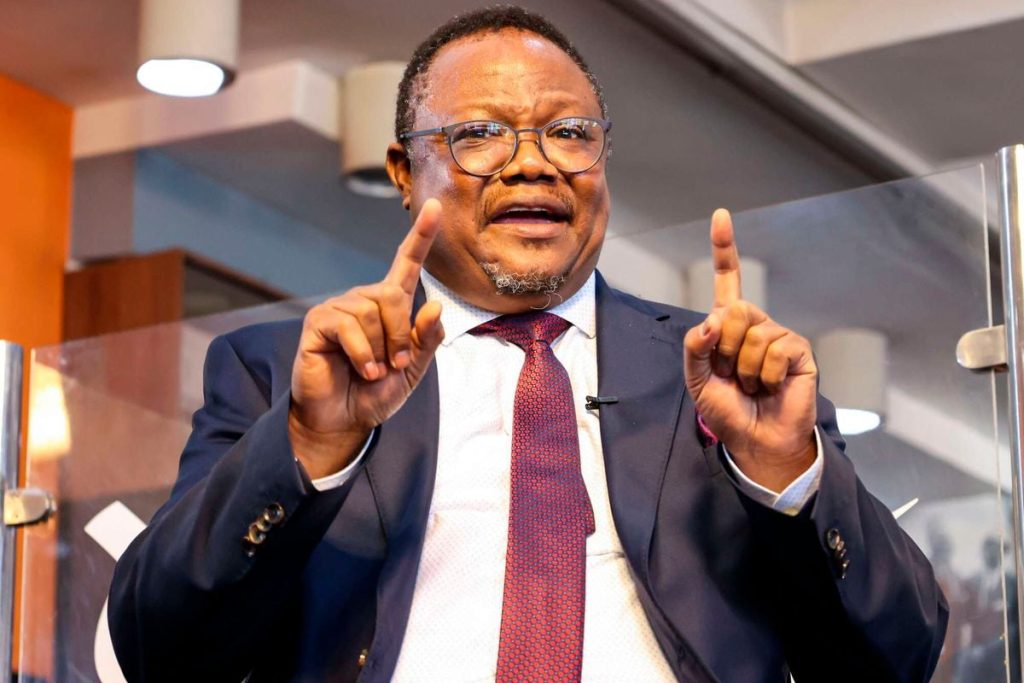Tundu Lissu, a prominent political figure in Tanzania and a long-serving advocate of transparency, justice, and human rights, has outlined a transformative vision for the country, particularly within the framework of his potential leadership of CHADEMA.
His commitment to administrative reforms, judicial independence, electoral reforms, police accountability, and internal political party restructuring highlights his broader agenda to institutionalize democracy and ensure an open and accountable government. This essay examines Lissu’s propositions and their potential impact on Tanzania’s socio-political landscape.
Administrative Reforms: A Foundation for Accountability
At the heart of Lissu’s vision is overhauling Tanzania’s administrative machinery. The Tanzanian government has historically faced inefficiency, corruption, and lack of accountability.
Lissu emphasizes that comprehensive administrative reforms will ensure that public institutions operate transparently, serve the citizens equitably, and respond effectively to their needs. These reforms could include:
Merit-based Appointments: Ending nepotism and favouritism in public service appointments by implementing stringent merit-based criteria.
Decentralization: Empowering local government authorities to make decisions directly impacting communities, thereby enhancing service delivery.
Digitalization: Introducing e-governance systems to improve efficiency, reduce corruption, and make government services accessible to all citizens.
Judicial Reforms: Safeguarding Justice and Rule of Law
Lissu’s legal background as a lawyer and advocate positions him uniquely to tackle Tanzania’s judicial challenges. Judicial independence in Tanzania has often been questioned, with allegations of executive interference and corruption tarnishing public trust. Proposed reforms include:
Independent Judicial Appointments Commission: To ensure impartiality in the selection of judges.
Access to Justice: Strengthening legal aid services to ensure that justice is accessible to marginalized groups.
ALSO, READ: CHADEMA’s Tug-of-War: Can Mbowe and Lissu Lead Tanzania’s Opposition Forward?
Revising Draconian Laws: Repealing laws that stifle freedom of expression, association, and assembly, which have often been used to target opposition and civil society.
Electoral Reforms: Strengthening Democratic Participation
The credibility of Tanzania’s electoral process has been a contentious issue, with accusations of electoral malpractice and bias in favour of the ruling party. Lissu envisions reforms to ensure free, fair, and credible elections. Key areas of focus include:
Independent Electoral Commission: Establishing a truly autonomous body to oversee elections and ensure impartiality.
Transparency in Voter Registration: Addressing voter suppression concerns by ensuring an inclusive and transparent voter registration process.
Election Observation: Encouraging local and international observers to ensure accountability during elections.
Police Reforms: Upholding Human Rights and Rule of Law
The police force in Tanzania has faced criticism for alleged human rights abuses, political bias, and lack of professionalism. Tundu Lissu’s proposed police reforms aim to transform the force into a professional, accountable, and community-oriented institution. Reforms could include:
Training and Capacity Building: Equipping police officers with skills to handle civil matters with respect for human rights.
Independent Oversight Mechanisms: Establishing bodies to investigate and address complaints against police misconduct.
De-politicization of the Force: Ensuring that the police serve all citizens impartially, regardless of their political affiliations.
Internal Reforms within CHADEMA: Strengthening Party Democracy
As a potential leader of CHADEMA, Lissu recognizes the need for internal reforms to strengthen party democracy and governance. These reforms include:
Transparent Leadership Selection: Ensuring that party elections are conducted transparently and inclusively.
Capacity Building: Empowering party members with training and resources to engage effectively in political processes.
Policy-driven Agenda: Focusing on issue-based politics rather than personal rivalries, which can undermine party unity.
Challenges and Prospects
While Tundu Lissu’s reform agenda is ambitious, its implementation will likely face several challenges, including resistance from entrenched interests, limited resources, and potential political backlash.
However, if executed effectively, these reforms could transform Tanzania into a model of democracy, transparency, and accountability in Africa.
Conclusion
Tundu Lissu’s vision for Tanzania represents a bold departure from the status quo. His focus on open governance, institutional reforms, and internal party democracy underscores his commitment to creating a fair and just society.
As Tanzania continues to navigate its democratic journey, leaders like Lissu hope for a future where institutions serve the people, elections reflect their will, and democracy thrives.
However, achieving this vision requires political will and the collective effort of citizens, civil society, and other stakeholders committed to building a better Tanzania.

